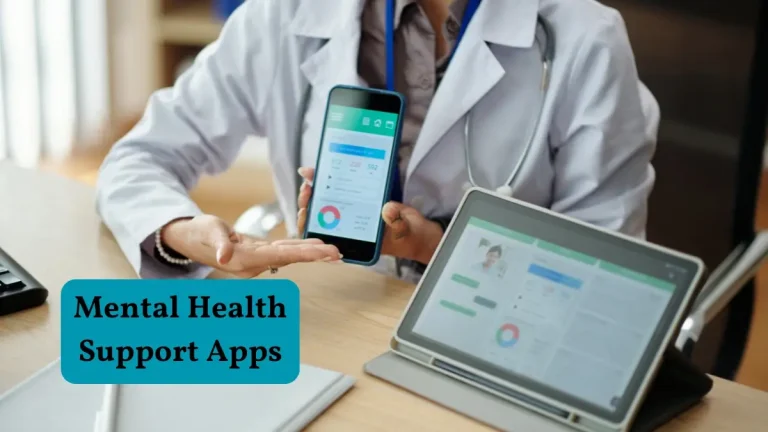Dateline — 22 August 2025
Byline — Staff Reporter
Men Mental Health Month: simple steps, key signs, and helplines for USA, UK, and Canada. Start small—one text, one walk, one win today. Share it!

Dek: Men are far less likely to seek help but far more likely to die by suicide. New figures across the USA, UK, Canada, Australia, the Netherlands, Ireland, Singapore, and South Africa show both progress and risk. This Men Mental Health Month piece breaks down what’s changing, what actually helps, and how to take a simple step today.
If you need help right now
- USA: Suicide & Crisis Lifeline — 988
- UK & Ireland: Samaritans — 116 123; Ireland crisis support via Pieta available nationally
- Canada: Suicide Crisis Helpline — 9-8-8
- Australia: Lifeline — 13 11 14
- Netherlands: 113 Suicide Prevention — 113 or 0800 0113
- Singapore: Samaritans of Singapore — main helpline info via SOS; common hotline 1767
- South Africa: SADAG Suicide Crisis Helpline — 0800 567 567
You are not alone. If you’re in danger, call your local emergency number.
What is Men Mental Health Month?
In the United States, June is widely recognised as Men’s Health Month, and mental health sits at the heart of it. Globally, November (often called Movember) also drives awareness around men’s mental health and suicide prevention. Think of June as a mid-year spotlight and November as a second push to keep momentum. Many organisations now use Men’s Mental Health Month as a year-round anchor for reporting, outreach, and practical tips.
The 2025 state of play (clear and simple)
- United States: Men account for a large majority of suicide deaths. The overall rate remains high, with men dying by suicide several times more often than women.
- England & Wales: Male suicide remains significantly higher than female, with the highest male rates often seen in mid-life, especially the 45–49 group.
- Australia: Around three-quarters of suicide deaths are male in many recent annual reports.
- Netherlands: National totals have been relatively stable over recent years; male risk remains a core concern.
- Singapore: The latest annual total fell to a multi-decade low, which is hopeful, but consistent vigilance is still needed.
- Ireland and South Africa: Systems differ and can lag. Both continue to prioritise prevention, with civil society groups filling critical gaps.
Bottom line: the Men Mental Health Month data points vary by country, but the pattern is stubborn. Men are at higher risk and seek help less often. That gap isn’t destiny. It’s a culture, access, and habit problem — which means it’s fixable.
PAS Framework — Problem, Agitate, Solve
1) Problem
Men report distress but engage less with therapy and formal services. Work stress, money stress, relationship stress, and loneliness stack up until everything feels heavy. In many places, men still fear being judged for opening up.
2) Agitate
The pinch points are predictable. Mid-life pressure peaks. Younger men feel isolated. Costs go up. The old “third places” — clubs, community halls, faith spaces, local sport — are thinner on the ground, especially after the pandemic era. Fewer casual meetups mean fewer chances to offload the small stuff before it becomes big stuff. Sleep gets messy, drinking creeps up, and problems multiply in silence.
3) Solve
Small steps work. The Men Mental Health Month message is not “change your life overnight.” It’s “change your day today.” Build one tiny habit that is so easy you can do it on your worst day: a five-minute walk, a two-line journal, a text to a mate, a helpline number saved in your phone. When you stack tiny habits, you get momentum without drama.
Case study — “One small step” beats “fix everything”
A 34-year-old warehouse worker in Manchester hit a wall: poor sleep, short temper, zero energy. Therapy felt intimidating. He started with a 15-minute evening routine: a short walk, a two-line note (mood out of 10 and one thing that helped), and a text to one friend. Two weeks later, after a bad day, he called a helpline and booked a GP visit. Three months on, sleep improved, arguments dropped, and he finally booked short-term talking therapy. The progress wasn’t flashy. It stuck.
Why this fits the Men Mental Health Month picture: Low-barrier habits plus a clear next step make help-seeking less scary. Men often prefer action-first approaches, so short, repeatable routines are a smart on-ramp to clinical care when needed.
What men say online (community experiences)
These anonymised takeaways from popular community threads reflect common themes:
- Short-term therapy helped men spot triggers, reduce overreactions, and learn plain tools they actually use.
- Weekly “walk-and-talk” with a friend beat silent scrolling for mood and sleep.
- Group formats were useful after one-on-one therapy, not as a replacement.
- Practical goals worked better than vague promises. “I’ll call on Tuesday at 6 pm” beats “I should get help.”
These are lived experiences, not medical advice. They echo the Men Mental Health Month idea: quick wins plus peer support can open the door to professional care.
The magic tips (that are not really magic)
Save this list. Keep it boring. Boring is repeatable. Repeatable is powerful.
- Sleep like it matters. Pick a consistent sleep window, even on weekends. If you wake repeatedly or snore hard, talk to a clinician.
- Morning light + steps. Ten to twenty minutes outside sets your body clock. Add a brisk walk most days.
- Name it, don’t numb it. If alcohol is the nightly “off switch,” count units this week. Drop one drinking day and swap it with a walk or call.
- One message a day. Text someone: “Quick check-in. How’s your week?” Push the conversation one step further than usual.
- Two-line journal. Mood out of ten. One helpful thing. Done.
- Micro-goals, not hero goals. Three sets of ten push-ups beats “get shredded.”
- Use helplines before a crisis. Numbers above are for “I’m not okay” days, not only the worst day.
- Plan your next low day. Write a simple “bad day” plan on a notecard: breath tool, five-minute walk, message a friend, call a helpline.
- Stack habits. After brushing teeth, do your two-line journal. After your commute, send your daily text.
- One honest talk per week. Put a 20-minute walk-and-talk in the calendar with a mate, partner, or relative.
These steps align with the Men Mental Health Month mission: practical routines that build momentum and make help easier to reach.
Men Mental Health Month: One Small Step Today
BERLIN — 22 Aug 2025 — You don’t need a full life reset to feel better. This Men Mental Health Month, the message is simple: small, steady moves make a real difference. Not flashy. Not perfect. Just doable.
You’re not broken because you’re tired or stressed. You’re human. Humans improve by stacking tiny wins. Think minutes, not months. Take a short walk after work. Write two lines before bed. Send one honest text to a friend: “Quick check-in—how’s your week?” That’s momentum. That’s action.
Work feels heavy? Start with what you can control:
- Set a regular sleep window.
- Keep your phone out of the bedroom.
- Keep water on your desk, not just coffee.
- If you like the gym, go. If not, do three sets of push-ups and take a walk. Progress is progress.
Feeling isolated? Choose simple connection:
- Join a lunchtime walk.
- Say yes to five-a-side or a pick-up game.
- Book a quick chat with your GP or primary-care doctor.
- Call a helpline before it becomes a crisis. Using support is not weakness. It’s smart.
Worried you’ll lose steam? Make it easy to keep going:
- Pair habits: after brushing your teeth, write your two lines. After your commute, send your check-in text.
- Set a daily alarm called “You for 5”.
- On rough days, try a three-minute reset: one minute box breathing (4 in, 4 hold, 4 out, 4 hold), one minute on a tiny task, one minute to message a friend.
Tell a mate what you’re trying. Invite him to try one thing too. It’s not a big speech. It’s teamwork. When men go first—admitting, adjusting, asking—we make it normal. Normal beats stigma.
Bottom line: you don’t fix a life in a weekend. You nudge it today, then nudge it again tomorrow. If the fog feels thick, reach out. If today feels okay, bank a small win anyway. Your future self will thank you for those boring, brave five minutes you choose right now.
If you need immediate support:
USA 988 • UK/Ireland 116 123 (Samaritans) • Canada 9-8-8 • Australia 13 11 14 (Lifeline) • Netherlands 113 / 0800 0113 • Singapore SOS • South Africa 0800 567 567
Your move: share one small step you’ll try this week—sleep window, walk, or check-in text—and tell someone. You’ve got this.

Country playbooks (local context + geo long-tail keywords)
USA — Men Mental Health Month USA tips and resources near me
- Reality check: Men account for the majority of suicide deaths. Firearms are a leading method; safe storage and off-site options during rough patches save lives.
- Do today: Add 988 to your contacts. If you own firearms, set up a voluntary temporary storage plan for tough periods with a trusted person or local arrangement.
- Workplace angle: Ask HR about Employee Assistance Program counselling; book one session, even if you think you won’t need a second.
- Community move: Start a Friday lunchtime walk with two co-workers. Keep it simple.
UK — Men Mental Health Month UK helplines and how to access talking therapies
- Reality check: Male suicide peaks in mid-life; stigma and access gaps persist.
- Do today: Call 116 123 if you’re struggling. Book a GP visit and ask about NHS Talking Therapies if anxiety or low mood is sticking around.
- Community move: Set up a monthly “walk-and-talk” at your gym or local sports club.
- Workplace angle: Post helpline numbers on the staff noticeboard and intranet.
Canada — Men Mental Health Month Canada resources and 9-8-8 support
- Reality check: Access varies by province, but national 9-8-8 crisis lines make immediate support simpler.
- Do today: Save 9-8-8. Pair your weekly walk with a friend; you can both vent without it feeling like “therapy.”
- Workplace angle: Ask your manager for a quiet space to make health calls during the day.
- Community move: Check for local men’s groups, sport clubs, or cultural associations that run peer chats.
Australia — Men Mental Health Month Australia tips and Lifeline support
- Reality check: A large majority of suicide deaths are male. Rural and regional areas face distance and access barriers.
- Do today: Save 13 11 14. If you’re outside major cities, build a routine around local sport, men’s sheds, or community halls — real-world check-ins matter.
- Workplace angle: Put helpline numbers on ID badges and staff rooms.
- Community move: Organise a Sunday park walk; people show up for simple plans.
Netherlands — Men Mental Health Month Netherlands resources and 113 help
- Reality check: Totals have been relatively stable, but risk remains higher for men, especially beyond age forty.
- Do today: Save 113 or 0800 0113. If you don’t like calling, schedule a chat session time for later.
- Workplace angle: Promote break-time walks; five to ten minutes outside does more than you think.
- Community move: Encourage local clubs to include a short mental health check-in before practice.
Ireland — Men Mental Health Month Ireland support and Pieta pathways
- Reality check: Services continue to invest in rapid response and community-based support; stigma still blocks first steps.
- Do today: Ring 116 123 or reach out to national crisis services. Ask your GP candidly about local counselling wait times.
- Workplace angle: Add crisis numbers to the team’s weekly bulletin.
- Community move: Pair GAA training nights with a five-minute well-being chat.
Singapore — Men Mental Health Month Singapore tips and SOS hotline guidance
- Reality check: The recent drop in annual suicides is positive, but progress can slip without daily habits.
- Do today: Save the SOS hotline. Start a routine pairing a morning walk with two-line journaling.
- Workplace angle: Encourage “camera-off” mental health check-ins during team calls if people prefer privacy.
- Community move: Tap neighbourhood networks and sports groups; practical meetups cut loneliness fast.
South Africa — Men Mental Health Month South Africa helplines and SADAG support
- Reality check: Economic stress and service gaps raise risk in some regions; civil society groups fill key roles.
- Do today: Save 0800 567 567. If a call feels hard, write a message draft so you know what to say.
- Workplace angle: Train a small team to spot risk and guide colleagues to support.
- Community move: Use WhatsApp groups for “check-in Friday” reminders.
Each local section purposefully includes country-specific phrases such as Men Mental Health Month USA tips and Men’s Mental Health Month UK helplines to help readers and searchers find relevant guidance.
Skills that scale (and don’t feel cringe)
- Name → Normalise/Normalize → Next step
- Name it: “I’ve felt off for weeks.”
- Normalise/Normalize: “That’s common. Many men go through this.”
- Next step: “I’m calling a helpline tonight and booking a GP visit.”
- Three-minute reset
- One minute of box breathing (4 in, 4 hold, 4 out, 4 hold).
- One minute of a micro-task (wash dishes, take the bins/trash out).
- One minute to text a friend.
- Coach mode for friends
- Ask: “What’s one small step we can try today?”
- Offer: “Want me on the line while you call?”
- Follow up tomorrow with a simple “How did it go?”
These behaviours match the Men Mental Health Month playbook: low-judgement support, small wins, steady follow-through.
What’s trending and why it matters
- Policy focus: More institutions are naming boys and men as priority groups for mental health, with school, workplace, and community pilots expanding.
- Helpline awareness: Short, memorable numbers are improving access, but many people still don’t know them. Put the number into your phone now.
- Peer spaces: Moderated online communities can act as a bridge to formal care — not a replacement — by giving men language, tools, and courage to take the next step.
All of this reinforces the core Men Mental Health Month message: make support easy to start and easy to repeat.
Quick data box (for editors and readers)
- Men account for the majority of suicide deaths across several countries.
- Mid-life remains a risk peak in many regions, but younger men are not immune.
- Consistent sleep, morning light, regular movement, frank check-ins, and early helpline use are the highest-impact everyday moves.
- Workplaces and clubs that normalise support — posting helpline numbers, scheduling walk-and-talks, and allowing time for appointments — make a measurable difference.
This is a concise snapshot for Men Mental Health Month coverage and can be updated as local stats refresh.

FAQ’S People Ask
1) What is Men Mental Health Month?
Answer: Men Mental Health Month is a public-health push to get men talking about stress, anxiety, low mood, and suicide risk—and to make help easy to reach. In the USA it sits inside Men’s Health Month in June, and many groups run a second big effort in November alongside Movember. The goal is simple: normalise support, reduce stigma, and give men practical steps they can start today.
2) When is Men Mental Health Month—June or November?
Answer: Both get used. In the USA, June is the main slot for Men’s Health Month and mental health is a key theme. Globally, November brings another wave via Movember and related campaigns. Many organisations now use Men’s Mental Health Month as a year-round hook, with June and November as peak moments.
3) Why does Men Mental Health Month matter?
Answer: Because men are less likely to seek help and more likely to die by suicide. Work stress, money pressure, loneliness, and “just tough it out” habits make things worse. Men Mental Health Month helps men take small, realistic steps—like saving a crisis number, booking a GP/primary-care chat, texting a friend—and shows that asking for help is a strength, not a failure.
4) What are early signs a man might be struggling?
Answer: Look for changes that stick around for more than two weeks:
- Broken sleep, constant fatigue
- Irritability, snapping at small things
- Pulling away from friends and family
- Drinking more to “switch off”
- Loss of interest in work, sport, or hobbies
Men’s Mental Health Month encourages one honest check-in: “You okay if I ask how you’re really doing?”
5) What simple actions can I take during Men Mental Health Month?
Answer: Keep it small and daily:
- Set a regular sleep window
- Ten to twenty minutes of morning light and a walk
- Two-line journal (mood out of 10 + one helpful thing)
- One check-in text to a mate
- Save your local crisis number
Small moves beat big promises. If today is rough, use the numbers at the end of this FAQ.
6) How do I support a friend during Men Mental Health Month?
Answer: Use the Name → Normalise/Normalize → Next step script.
- Name: “I’ve noticed you seem off lately.”
- Normalise/Normalize: “Happens to a lot of us.”
- Next step: “Want me to sit with you while you call or text for support?”
Offer a lift to a GP/primary-care visit, or do a 20-minute walk-and-talk. No lectures—just steady presence.
7) What workplace ideas fit Men Mental Health Month?
Answer: Practical, low-pressure options:
- Post crisis numbers in common areas and on the intranet
- Run a weekly lunchtime walk group
- Allow time in the day to call a GP or Employee Assistance Programme/Program
- Train managers to ask, “What do you need from me today?”
These moves make help normal and easy to use.
8) Are there country-specific resources for Men Mental Health Month?
Answer: Yes. Save the number for where you live:
- USA: 988 (Suicide & Crisis Lifeline)
- UK & Ireland: 116 123 (Samaritans)
- Canada: 9-8-8 (Suicide Crisis Helpline)
- Australia: 13 11 14 (Lifeline)
- Netherlands: 113 or 0800 0113 (113 Suicide Prevention)
- Singapore: SOS (commonly reached via 1767)
- South Africa: 0800 567 567 (SADAG)
If someone is in immediate danger, call emergency services.
9) What can schools, clubs, and gyms do for Men Mental Health Month?
Answer: Keep it simple and repeatable:
- Add a five-minute wellbeing check-in at training
- Put helpline posters on noticeboards
- Host a monthly “walk-and-talk” event
- Invite a local clinician or counsellor to a Q\&A
Men Mental Health Month works best when everyday places become safe starting points.
10) What’s one move I can make today for Men Mental Health Month?
Answer: Do this now: save your local crisis number in your phone, then text one friend to set up a 20-minute walk this week. If you’re unsure what to say, try: “Quick check-in—how’s your week? Fancy a short walk?” Small action today > big plan tomorrow.
Engagement tips (so readers actually act)
- Drop your city or country in the comments and share one resource you’ve used or plan to try.
- Share a micro-win from this week: went to bed earlier, did three walks, had one honest chat.
- Ask anything about small steps, talking to a GP, or what to expect from a first therapy session. The community can offer grounded advice.
These prompts keep readers on the page, talking to each other, and moving forward — perfect for Men Mental Health Month engagement and for real-life outcomes.
Gentle but Direct
If this resonates, post one next step you’ll try before Sunday. If you’ve used a helpline or therapy, share one thing you wish you’d known earlier. Your comment could be the nudge someone else needs.
Final Thought
Men don’t need a perfect plan; they need a start. That’s the heartbeat of Men Mental Health Month. Real change isn’t a movie montage. It’s small, boring wins stacked day after day—sleep at a steady time, ten minutes of daylight, one honest text, a short walk. Doable on good days. Still doable on rough ones.
If you’re reading this thinking, “I’ll sort it when life calms down,” here’s the truth: life rarely calms down on its own. You make room for it. Pick one habit you can repeat when you’re tired, busy, or annoyed. Then tell one person what you’re trying. Accountability beats motivation every time.
If you’re supporting a friend, don’t overthink it. Ask how he’s really doing. Offer a simple next step. Sit with him while he makes the call. No speeches. Just presence.
Workplaces, clubs, and families: keep the door open. Post crisis numbers. Schedule a walk. Normalise/Normalize check-ins. When support is ordinary, stigma has nowhere to hide.
Your move now: choose one action for the next seven days and write it down. When you’re done, share your micro-win in the comments so another man sees it and tries too. If the fog is heavy, use your local crisis line and talk to someone tonight. You’re not alone.
Get More Information: Wellbeing and mental health For UK Govt

About the Author: Pejus Datta
Pejus Datta is the Owner and Founder of Well Tech World, a platform dedicated to sharing high-quality, real, and organic content on technology and healthcare. With a passion for creating informative and engaging articles, Pejus has built Well Tech World to serve readers across English-speaking countries, including the USA, UK, Canada, Australia, Netherlands, Ireland, Singapore, and beyond.
He is committed to delivering content that is both insightful and valuable, focusing on real-world, actionable advice that keeps readers informed in the fast-moving world of tech and health.
For questions, feedback, or content suggestions, you can reach Pejus directly at support@welltechworld.com or through the Contact Us page on the site.
His most recent article, Google Workplace
Stay connected with Well Tech World for authentic, practical, and timely insights!





This is an excellent and very insightful post! I really appreciate the way you highlighted men’s mental health issues. As someone from the USA, I find your content both informative and engaging. Keep up the great work!